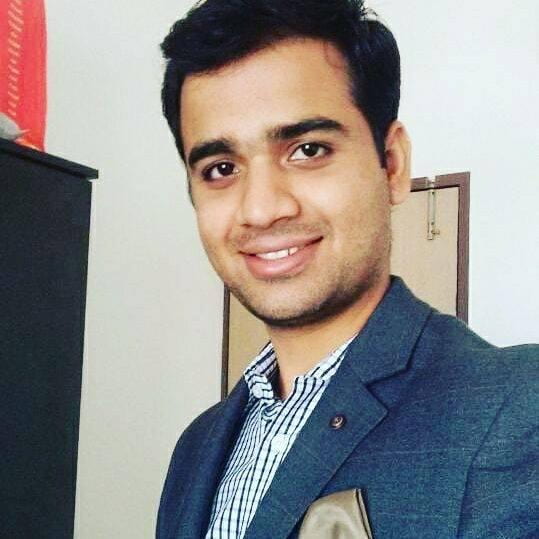Written & Edited by Rachel Pichette
Posted by Ricardo Serrano
This week we will be spotlighting the work of Alok Ratnaparkhi, a graduate student in the Masters of Computer Science program at UMass Dartmouth. He is from Aurangabad, India. Aurangabad is a small city in the state of Maharashtra. It is surrounded by many international and national heritage sites such as Ajanta Ellora caves and Mini Taj mahal, known as Bibika Makbara. Ratnaparkhi graduated with his bachelor’s from Jawaharlal Nehru Engineering College, Aurangabad, in 2014 with distinction. Moving to the United States was a big step. “I am a small-town guy and the first from my family to board any international or national flight.” Ratnaparkhi says of the move, “It was a very transforming, encouraging yet challenging journey for me,”
Prior to pursuing his master’s degree, he attained 4 years of experience in the software industry working as a Solution Architect at Cognizant. During that time Ratnaparkhi worked on multiple projects and technologies and managed several more. He also recently led a team to deliver an automation framework compatible with Amazon Alexa for one of the top US banks. Ratnaparkhi currently works as a research assistant in the computer science department.
Ratnaparkhi’s research is focused on the intersection of Cyber Security and Software design. “Software design is an essential yet most neglected part of software engineering when it comes to application security,” he says. “According to Data Breach Survey 2020, the average cost of data breaches globally is $3.9 million. It is important to instill security practices in all phases of the software development life cycle. Imagine the perfect building plan and poor construction materials and quality construction material but poor building plans. In both cases, any building is destined to collapse. It is similar to software as well. Any program with a poor design is destined to suffer exploitation. My research is involved in defending against cyberattacks using well-proven software designs.”
Why is this work important and interesting to you?
Ratnaparkhi: “Due to my previous work experience, I was fortunate enough to work in all phases of the software development life cycle. It inculcated my interest in overall software engineering with a broad understanding of software design and architecture. Having worked with multiple clients, I realized that security is mostly considered during the development and phases after the development of the software development life cycle. Companies hire penetration testers for this job when it should be taken into consideration since the beginning, including the design phase. Dr. Liu from the Computer science department and I shared a common interest in tackling software security at the design level. She started and gave direction to the research through her untiring guidance and valuable inputs. I got full mentoring and encouragement from Dr.Liu to bolster my research.”
What is the most challenging aspect of your research?
Ratnaparkhi: “My research is based on two separate fields. Cyber Security and Software design. The most challenging part of the research is to go through numerous designs of secure systems and connect the dots to understand the relationship between the design and security of the application. Another challenge is, the research is not restricted to a single domain. I have to get and implement the knowledge from various domains such as algorithms, design, patterns, UML, programming languages, architecture, penetration testing, and cybersecurity to reach the final outcome.”
What long-term goals do you have for your work? What plans do you have for once you finish your graduate degree?
Ratnaparkhi: “The work I am doing is novel work, and I believe it will dramatically impact future software and programming frameworks’ designs. This research will open a flood of future research on similar topics. My long-term goal is to pioneer a new way of dealing with software security issues at the design level and a new research area. After completing my graduation, I plan to work as a software engineer at any of the companies from FANG.”
FANG refers to prominent American technology companies such as Facebook, Amazon, Netflix, and Google.
Alok Ratnaparkhi plans to graduate in the spring of 2021. Outside of work and school, he enjoys music. “Before being an Engineer, I’m an artist at heart,” he says. “Whatever I am today is because of music. I love playing guitar and singing songs.”
You can follow him on LinkedIn


Good one bro…. Nice journey… All the best for ur future endeavours 👍…